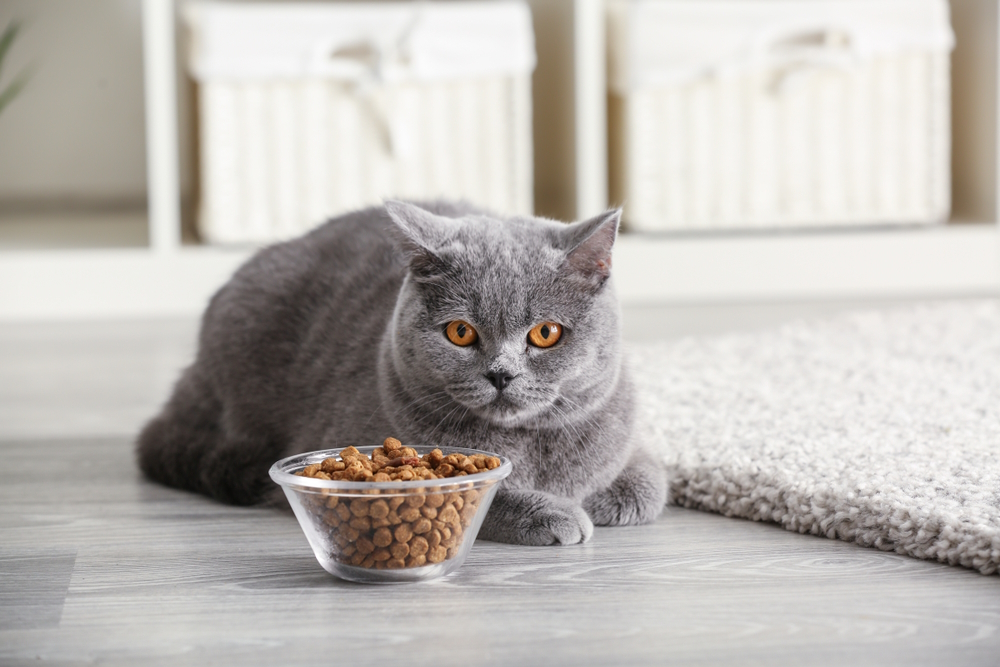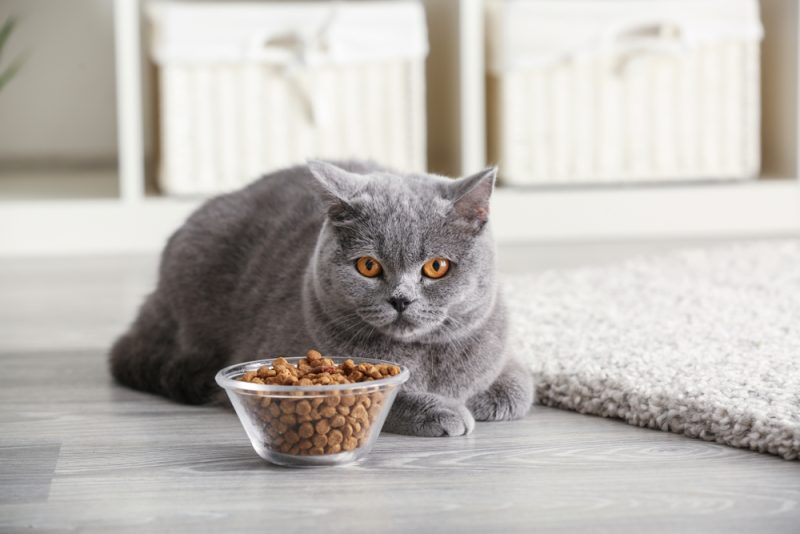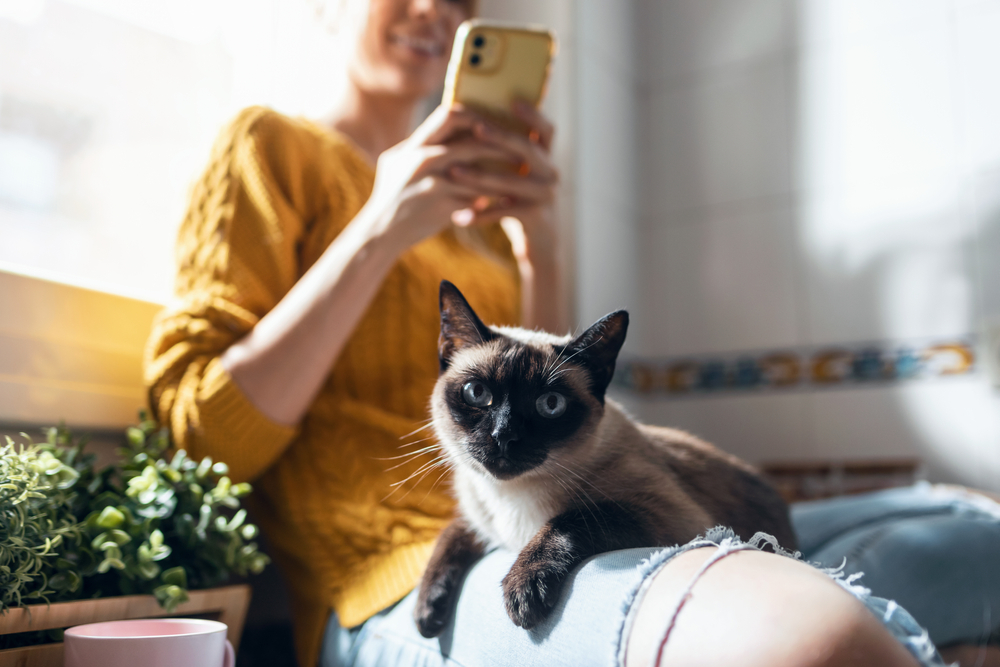Click to Skip Ahead
Cats can seem like mysterious creatures and exhibit behaviors that make no sense to us. If your cat is healthy but turns their nose up at some types of food, you likely have a finicky cat!
With healthy cats, picky eating can be a matter of taste and a battle of wills.
However, there are reasons why your cat may be refusing certain foods, and ensuring they have a clean bill of health is your priority. Picky eating can be a behavioral issue, but it’s usually due to your cat’s preferences. The wide variety of foods available has made finicky eating less common, but some cats still refuse to eat their meals.
What Is Finicky Eating?
Finicky eating is being choosy over food. Your cat may refuse their food for no reason after eating it a few times or may only like a specific brand and type. This can present a problem for owners since they want their cats to get enough to eat, and it can get expensive if they have to change their food often and waste it.
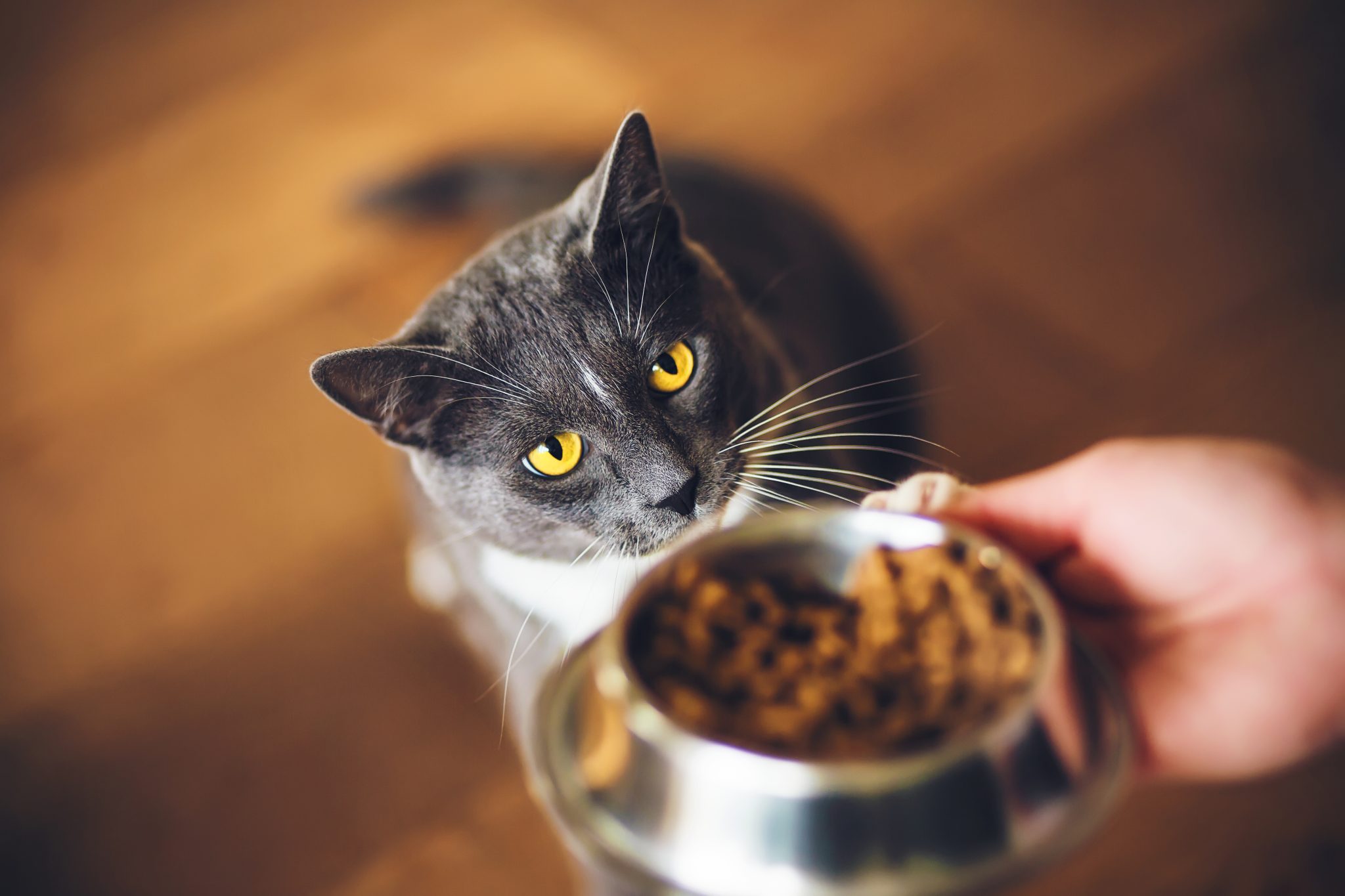
Is My Cat A Finicky Eater?
One important distinction to make is that an overfed cat may refuse a meal simply because they are not hungry; this does not make them a finicky eater. A finicky eater will eat less than the ideal amount of calories per day while an overfed cat will eat more.
The first thing to look at is how much your cat actually consumes per day. Measure how much food is put out each day and how much is left to give you an idea of how much they are eating. Most commercial foods will have a feeding guide of how much a cat should eat per day based on their weight. Remember that you should subtract the calories from any treats or other foods from this guide.
If your cat is eating roughly the recommended amount, or more, they are not a finicky eater. The feeding guide is a rough guide as the metabolism and activity level of every cat is different. Your cat’s body condition score should also guide you as to whether they need more or less calories.
What Causes Finicky Eating?
Some picky cats don’t like the texture, size, or flavor of the food, and their owners must experiment with different formulas to determine which type their cats prefer. Cats who enjoy human food or table scraps can also become picky since they prefer it over cat food.
It can be very tempting to give your cat treats when they’re not eating their food, but it can exacerbate the problem and make it harder to transition them back to feline foods.
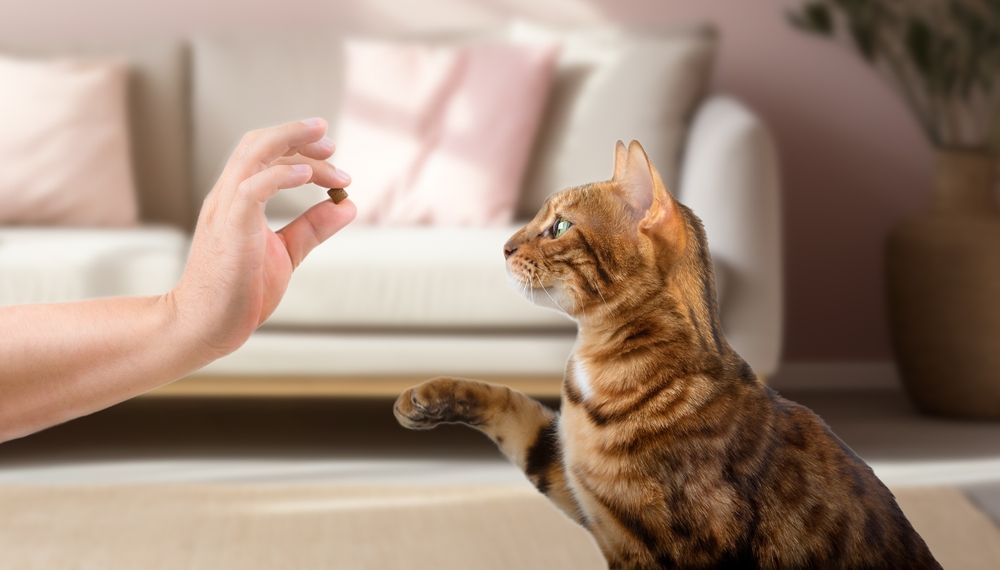
What Other Reasons Are There for Finicky Eating?
If your cat starts refusing food in any way, you must take them to your vet’s office for an examination. There are many reasons why your cat may not be eating their food, and each can show different signs.
If your cat eats certain textures of food but refuses others, there could be problems with their teeth. For example, periodontal disease or mouth lesions can cause pain. Dry food can be particularly difficult and painful for cats to eat if they have problems with their teeth, and it could be the reason why they’re refusing their dry food but eating wet food.
Your cat may also begin to refuse food if they have digestive discomfort. This usually comes with other signs of illness, such as vomiting, diarrhea or gas, but a visit to the vet is in order, even if you don’t notice other signs.
Finally, cats who have problems with their sense of smell or feel sick may not want to eat as much. Cats cannot taste food if they can’t smell, so if something is blocking their nose (such as mucus or a mass), they can stop eating altogether.
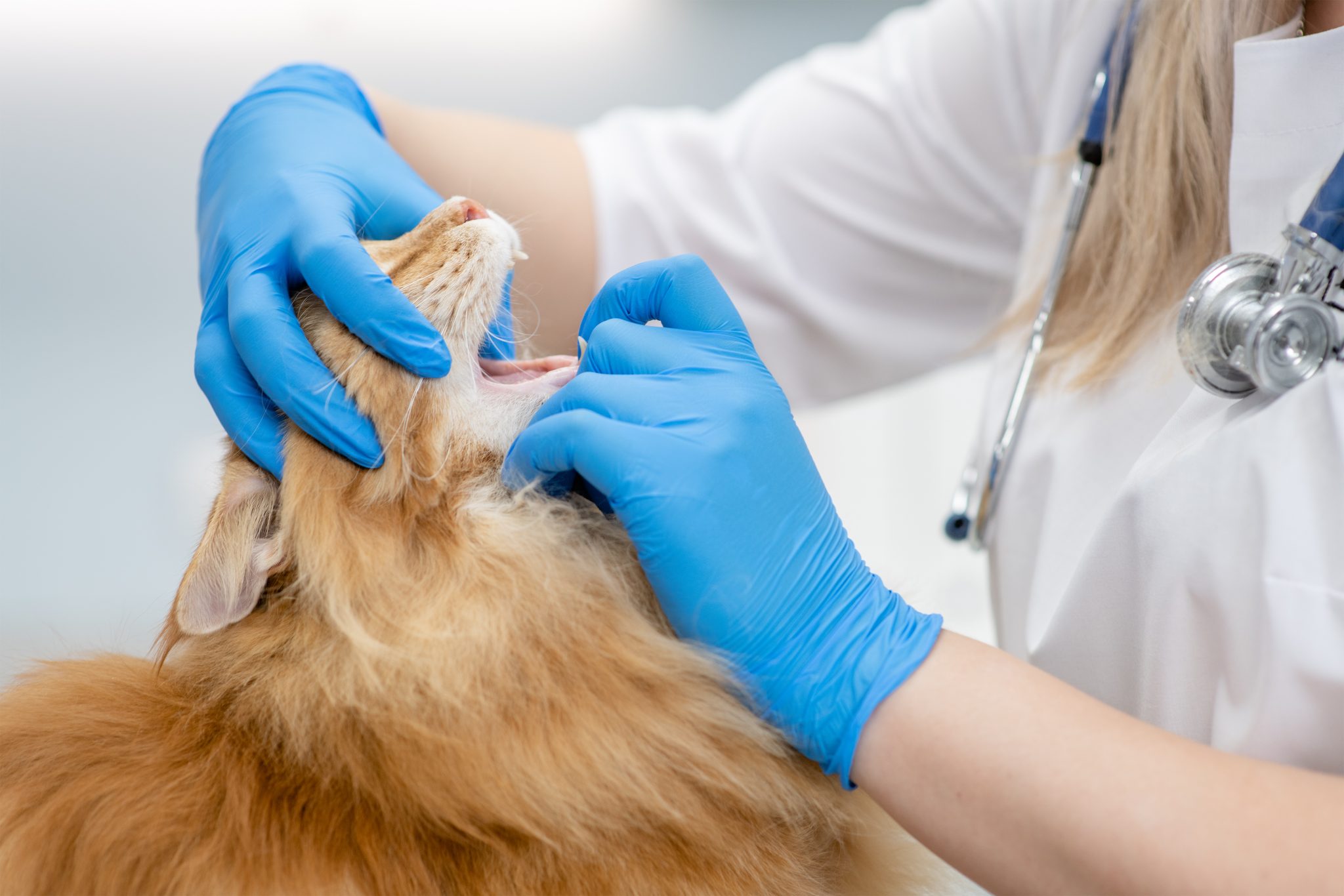
What Should I Do to Stop Finicky Eating?
There are a few ways you can address your cat’s finicky eating after the vet has cleared them. First, you can change the way you feed your cat. Cats eat small meals often in the wild, and your feline may not want to eat large portions.
You can feed your cat in the morning and leave the food out for around 30 minutes. Then, you can take it away until the next meal; your cat will learn that if they don’t eat when the food is available, they’ll not be able to until later!
This can be difficult with wet food since you have to remove uneaten portions so they don’t spoil. So, you can serve smaller portions until your cat is eating better to avoid waste. Offer more meals throughout the day at the start, around four or five, to ensure your cat gets enough calories.
If your cat likes a particular taste or texture, it’s best to identify it and stick with it. This will (most likely) help your cat eat more and save money on wasted food!
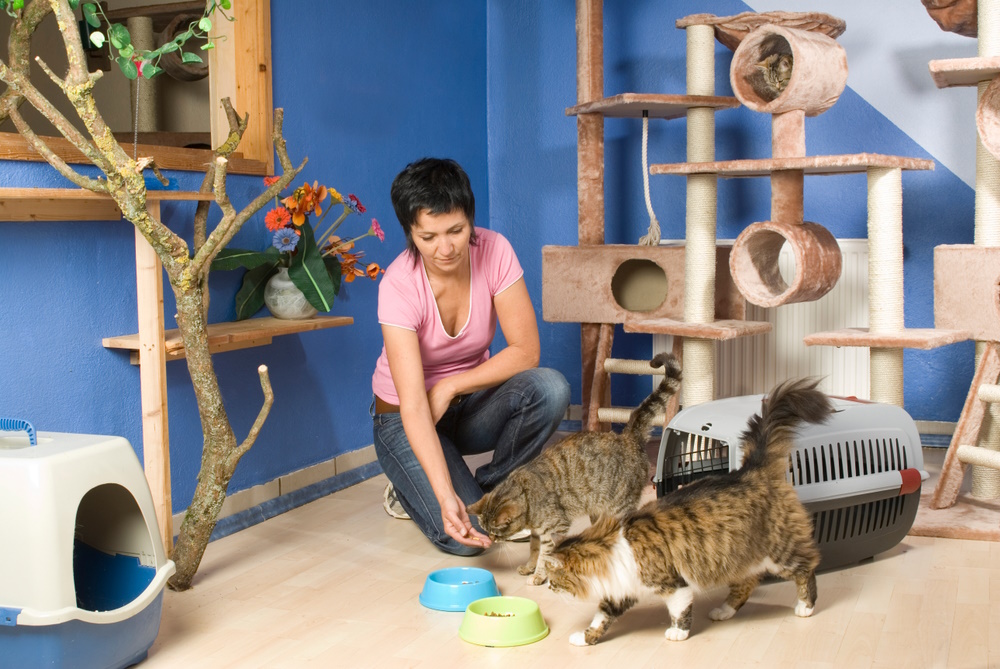
Can I Stop Feeding My Cat for a Short Time?
It’s unhealthy and dangerous to stop feeding your cat completely. Although cats typically eat when they’re hungry, a stubborn cat or cat with other health issues can get very sick from extended periods without food.
For example, cats with medical conditions can develop hepatic lipidosis in a short amount of time without food, which can be fatal. Healthy, picky eaters may refuse a meal initially, but most won’t starve themselves and eventually eat their food.
Determining which type they prefer by experimenting with different formulas is vital to helping them find one they like. However, when a cat doesn’t eat because of a health issue, they need veterinary assistance to get them back to a regular eating schedule.
Final Thoughts
If your cat is fussy but healthy, you can provide several formulas for them to sample until you find one they like. However, it’s essential to rule out any health problems before making changes to their diet.
You can do a few things to remedy finicky eating, including changing your cat’s feeding routine and sticking to one type of food. Ultimately, some cats are just particular, and it takes trial and error to determine which cat food is best for them.
Featured Image Credit: Pixel Shot, Shutterstock

